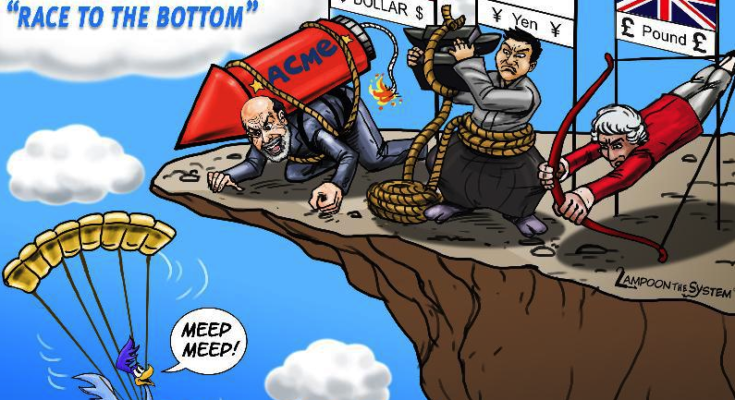March Madness Begins!

While team Euro’s coach Draghi has practically guaranteed an EU victory with a $1.2Tn blast of monetary easing set to begin in March, other countries are NOT going to take this lying down and already we’ve seen a February easing of reserve requirements by the Chinese team and already, this weekend, they’ve kicked March off with a surprise 0.25% rate cut and THE GAME IS ON!!!Â

WHO will devalue their currency most in March?  Already Switzerland, Sweden and Denmark are commanding negative rates – that means YOU PAY THEM to hold your money. Monetary-policy makers are seeking to spur spending over saving. The risk is that negative rates backfire and result in even less demand. That could happen if people begin stuffing their cash under mattresses, or if rates below zero eat into the profit margins of banks, which we’re already beginning to see, as negative rates distort financial markets.
Willem Buiter, Citigroup’s global chief economist and a former Bank of England monetary policy maker, said in a January note that an interest rate of minus 5% should be no harder to set than a positive rate of 5%.

This is the way monetary policy is heading – it punishes you for NOT putting your money into high-risk assets. In fact, logically, we can’t really call stocks high risk if the market always goes up (supported by monetary easing) and rewards you with rising equity valuations while the banks, by comparison, GUARANTEE TO TAKE YOUR MONEY. Â
This is another reason companies are buying their own stock at record levels ($450Bn last year, which is 8% of the Nasdaq’s entire market cap), which has decreased the number of shares available for sale at the same time as cash is being forced into the stock market to avoid the Central Bank tax that is being imposed.

The Central Banks are also artificially depressing bond rates by snatching them up at auction, leaving few of those available to the general public, who then have to bid lower rates on the money they lend – even to countries and companies with questionable credit – lest they be forced to put their money back in the bloated market or, even worse – IN THE BANK.

